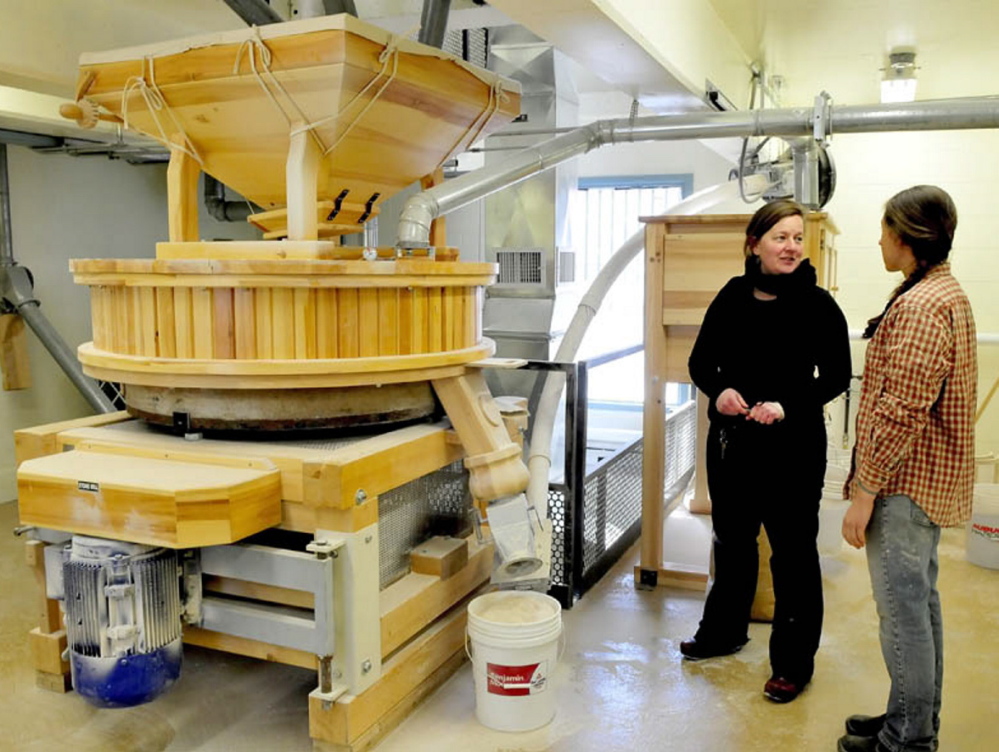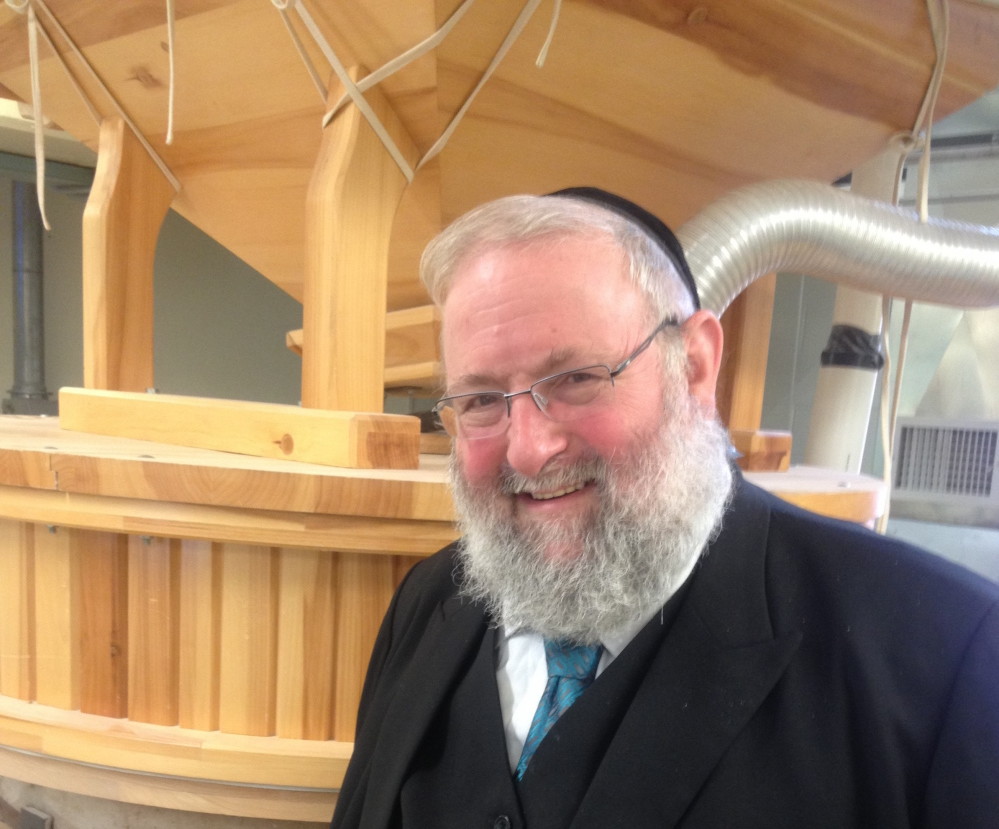SKOWHEGAN — Rabbi Zushe Blech wrote the book on kosher.
Blech, a “kashrus” administrator at Earth Kosher in Monsey, New York, was in Skowhegan on Thursday to inspect production at the Somerset Grist Mill to make sure everything is kosher – clean and fit to eat with no unwanted ingredients or additives.
The designation is not just a dietary standard for Jews, Blech said. Kosher means good, healthy food for all consumers who want nothing but the best ingredients.
“In the United States, a kosher status is perceived as an additional sign of quality, it’s a sign that somebody else is inspecting it,” Blech said. “The driving force from the consumer perspective for kosher is not only the Jewish population. There are many, many millions of people that look for kosher certification.
“They perceive it as – like the Hebrew National commercial – we answer to a higher authority.”
Blech, 62, dressed in a black three-piece suit and wearing a gray beard and a black yarmulke, or skull cap, travels all over the world to inspect and certify kosher food production and consumption. He was in Bolivia on Wednesday and will be in San Francisco next Tuesday after returning home for a little rest with his wife and four grown children. Blech said he has been conducting kosher inspections for 30 years.
The author of the 550-page book “Kosher Food Production,” Blech came to Skowhegan at the invitation of Amber Lambke, who owns the mill that houses organic grain production and space for other food programs and businesses. The purpose of the visit was to certify that the mill’s organic, stone-ground flour, rolled oats, wheat, rye, buckwheat, cornmeal and heritage grains are produced without additives such as powdered milk and or food modifiers.
Blech said the word “kosher” means “fit or appropriate.”
There is no such thing as “kosher-style” food, and kosher is not a style of cooking. Chinese food can be kosher if it is prepared in accordance with Jewish law, and there are many fine kosher Chinese restaurants in Philadelphia and New York, according to the website Judaism 101.
Products from the Somerset Grist Mill were deemed kosher Thursday, the rabbi said.
“This whole entire facility is very easy from a kosher perspective – getting involved with other ingredients and the potential for other operations taking place,” the rabbi said. “We use the term ‘kosher’ to mean that it’s fit to be eaten.”
Kashrut is the body of Jewish law dealing with what foods can and cannot be eaten and how those foods must be prepared and eaten. “Kashrut” comes from the Hebrew root “Kaf-Shin-Reish,” meaning fit, proper or correct. It is the same root as the more commonly known word “kosher,” which describes food that meets these standards, according to the website.
Blech said the food is not “blessed” by a rabbi to make it suitable to eat; instead, the food is determined to be in compliance with kosher rules.
“The flours here are what we would essentially say are inherently kosher. They don’t require any special action on our part,” he said. “The purpose of this inspection is that you are not adding things that would compromise its erstwhile kosher status.”
Lambke said the visit was to certify that milk powders are not added to baking mixes, or dough conditioners to the flour, gluten modifiers, blends of powdered shortening or emulsifiers from animal fat that would compromise allergy concerns.
The grist mill has a contract with Earth Kosher, which calls for an annual inspection.
“The real reason I started doing this is because Whole Foods has a strong interest in seeing products that are kosher-certified and labeled as such if they are,” Lambke said. “Whole Foods is one of our customers in the North Atlantic region, so we entered this process to label our products to sell to Whole Foods.”
Lambke said when the grist mill opened in 2012 in the former 1897 Somerset County Jail, she was able to get kosher certification through a rabbi in Portland, who inspected the place. But that rabbi didn’t want the commitment and responsibility of an annual visit, so she contacted Blech.
Lambke said the kosher certification is simply another part of the healthy foundation of the grist mill and its food production. She said some people felt the need to cleanse the former county jail of negative vibrations with a “smudging” ceremony, trying to rid the cellblocks of dark memories with ritual smoke. But she said it was the people who came to the mill, the Pickup Cafe, the Farmers Market and the knitting shop that brought the good vibrations to a once-dark place.
“It is the people and the activities that happen here that changed the energy here,” she said. “The energy change here has been palpable. It was disconcerting to spend time in this building early on, but that has totally changed for me.”
Copy the Story LinkSend questions/comments to the editors.





Success. Please wait for the page to reload. If the page does not reload within 5 seconds, please refresh the page.
Enter your email and password to access comments.
Hi, to comment on stories you must . This profile is in addition to your subscription and website login.
Already have a commenting profile? .
Invalid username/password.
Please check your email to confirm and complete your registration.
Only subscribers are eligible to post comments. Please subscribe or login first for digital access. Here’s why.
Use the form below to reset your password. When you've submitted your account email, we will send an email with a reset code.